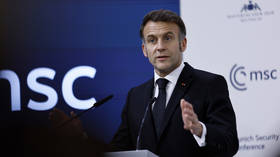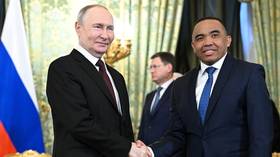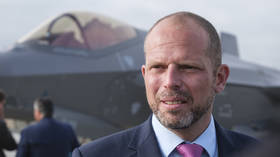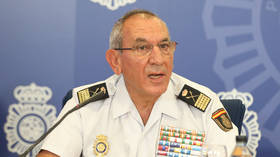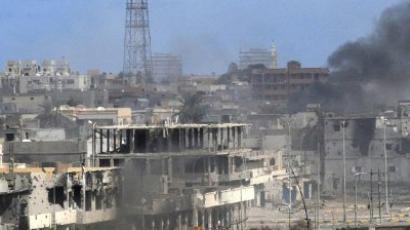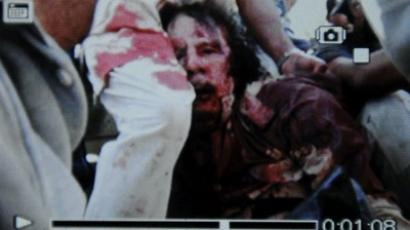No farewell to arms in post-Gaddafi Libya
Despite an official end to hostilities in Libya in the wake of the murder of Colonel Gaddafi, the outlook remains grim. Weapons have found their way from military depots into the hands of individuals all over the country, heightening insecurity.
As armed chaos tightens its grip on Libyan cities, news emerged that Colonel Gaddafi’s family is preparing to sue NATO for the air strike on his convoy that led to his violent death at the hands of NTC fighters. The family’s lawyer says the Alliance's actions went way beyond their mandate to protect civilians, and were clearly aimed at overthrowing – and ultimately killing – the country’s former leader.In the meantime, with the official war over and Gaddafi gone, the weapons remain fully loaded.Human Rights Watch has expressed grave concern about leftover arms in Libya.Among the arms stolen from warehouses are thought to be a large number of portable ground-to-air missiles which, in the wrong hands, could take down passenger aircraft. Sukant Chandan, an activist with British Civilians for Peace in Libya, has added his voice to the chorus of concern over the surfeit of arms circulating in the country. “It’s through NATO and its allies in the region which these weapons have been flooding Libya. Also Libya is quite a well-armed country anyway; the population has quite a lot of light weapons in its possession,” he says.And those ‘”light” weapons are becoming a heavy burden on the NTC, which is now relying on an army of former rebels to maintain law and order. “We try to control the weapons, and we check. If somebody has a weapon, we ask him if he has authorization for the weapon or not,” claims field commander and former rebel Abdul Basset. Checkpoints have been set up across Tripoli to make sure those carrying weapons have proper documentation issued by the NTC. People are also being asked to return the firearms to depots. The question now is, what if they don’t? And what does that mean for stability in post-Gaddafi Libya? “Now as you can see, everything is being secured here and under control. Now we will make some kind of mechanism how to give back the weapons,” Abdul Basset says.But RT’s crew got a very different impression of how things are panning out on the ground. Reporter Anissa Naouai asked one military commander about plans to disarm the population. The answer?“I swear I don’t know.” The officer’s candid response provoked a flurry amongst superiors, who rushed to prime him with a more palatable reply. Speaking in Arabic, they were heard to say:“Well just tell her [RT correspondent] that there is this plan, and that we're calling upon all civilians to give up their weapons and return to normal life,” a field commander answered.At a makeshift arms collection center that covers one neighborhood in Tripoli, RT’s crew was shown several dozen weapons of all kinds which had been brought to the center the previous day. However, the quantity was dwarfed by the vast numbers of arms being brandished on just one Tripoli street and filmed by RT. RT asked one field commander, “Do you know how many weapons there are in Libya?”The answer? “I think there are a lot of weapons in Libya. I think everybody has a weapon.”Some think the huge and uncontrolled quantity of weapons circulating in the country might have disastrous consequences in the post-Gaddafi power-vacuum where post-revolt chaos and an armed power struggle are looming. “What you have now in Libya is scores of armed factions who have no respect for each other and actually for NATO either,” argues activist Sukant Chandan. “They opportunistically used NATO to achieve some aims, and NATO has been foolish enough to go along with this. So what we are going to see now is intensification of the civil war between – increasingly – the factions that have overthrown the Gaddafi regime.”With many Libyans not yet ready to say a farewell to arms, the NTC, which was only able to beat Gaddafi with NATO’s help, are now asking the alliance to continue their mission – a vivid indication of just how fragile the peace in Libya is.
Pepe Escobar, a columnist and correspondent for the Asia Times, thinks the outlook for the country is bleak, and sees comparisons between what happened in Sirte, where according to emerging reports rebels shot dead 267 POWs after the city surrendered, with events in Iraq seven years ago.“Fallujah at the end of 2004 [equals] Sirte in October 2011. The US Marines destroyed Fallujah in order to save it – the NTC and NATO did the same to Sirte,” says the correspondent. “What Gaddafi did not do – the claims about a ‘massacre’ in Benghazi – the NTC and NATO did for real in Sirte.”Escobar argues that a new civil war in Libya has already started and predicts that NTC fighters will be unable to form a coalition government.“They will never set up a government because they are militias fighting against militias,” he says, predicting that NATO will be running Libya as a kind of protectorate against the country’s own destructive inner forces and will take control of Libya’s natural resources in return.“There will be a puppet government [Afghan president] Karzai-style in Tripoli, and civil war all over the place.”



